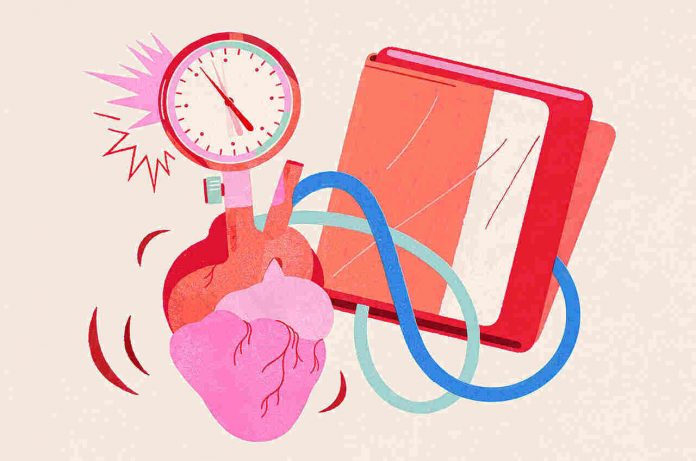According to recent research from The Australian National University, those with high blood pressure that falls within the usual suggested range are in danger of accelerated brain aging (ANU). The study also discovered that having the right blood pressure keeps our brains at least six months younger than our real age.
National health guidelines should be amended to reflect the study’s crucial results, they say.
Participants with high blood pressure had older and hence less healthy brains, increasing their risk of heart disease, stroke, and dementia, according to the ANU study, which was published in Frontiers in Aging Neuroscience.
Participants with the high blood pressure but within normal limits had older-looking brains and were more likely to develop health problems.
Professor Nicolas Cherbuin, Head of the ANU Centre for Research on Ageing, Health, and Wellbeing, said, “This belief that one’s brain becomes unwell because of high blood pressure later in life is not totally true.” “It begins sooner, and it begins in persons with normal blood pressure.”
Blood pressure that is less than 120/80 is considered normal, while blood pressure that is closer to 110/70 is considered excellent and healthy. The new study comes after a huge worldwide study revealed that the global population of adults over 30 with high blood pressure had doubled.
Professor Walter Abhayaratna, a cardiologist and co-author of the study, believes that if we maintain normal blood pressure, our brains will stay younger and healthier as we age. “Rather of waiting for our blood pressure to become an issue, it’s critical that we implement lifestyle and dietary adjustments early in life to prevent it from going too high,” he added.
“By the time they reach middle age, someone with an ideal reading of 110/70 has a brain age that appears more than six months younger than someone with a high blood pressure of 135/85.”
More than 2,000 brain scans of 686 healthy people aged 44 to 76 were evaluated by the ANU team in collaboration with colleagues in Australia, New Zealand, and Germany. Over the course of a 12-year period, the participant’s blood pressure was tested up to four times. A person’s brain age, which is a measure of brain health, was calculated using data from a brain scan and blood pressure reading.
Professor Cherbuin, the study’s lead author, said the findings are especially concerning for young individuals in their 20s and 30s because the effects of high blood pressure take time to manifest in the brain.
“Because we can identify the effects of high blood pressure on brain health in adults in their 40s and older, we must infer that the consequences of high blood pressure develop over time and could begin in their 20s. This suggests that the brain of a young individual is already vulnerable “stated Professor Abhayaratna stated that the outcomes of the study demonstrate the need of everyone, particularly young individuals, to check their blood pressure on a regular basis.
“Australian adults should check their blood pressure at least once a year when they see their GP,” he added, “with the goal of keeping their target blood pressure closer to 110/70, especially in the younger and middle age groups.” “If your blood pressure is high, you should talk to your doctor about ways to lower it, including modifying lifestyle factors like food and physical activity,” he added.



















![10 Countries With the Best Healthcare in the World [Statistical Analysis] Countries With the Best Healthcare in the World](https://articleify.com/wp-content/uploads/2025/07/Countries-With-the-Best-Healthcare-in-the-World-1-150x150.jpg)









